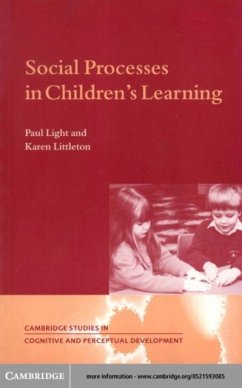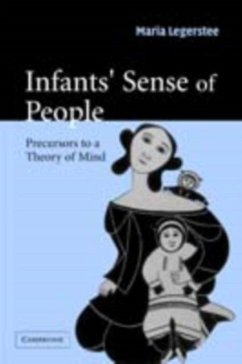
Peer Relationships in Cultural Context (eBook, PDF)
Versandkostenfrei!
Sofort per Download lieferbar
73,95 €
inkl. MwSt.
Weitere Ausgaben:

PAYBACK Punkte
37 °P sammeln!
This book responds to the absence of a comprehensive consideration of the implications of culture for children's peer relationships. Although research in this field has burgeoned in recent years, cultural issues have often been overlooked. The chapters tap such issues as the impact of social circumstances and cultural values on peer relationships, culturally prescribed socialization patterns and processes, emotional experience and regulation in peer interactions, children's social behaviors in peer interactions, cultural aspects of friendships, and peer influences on social and school adjustme...
This book responds to the absence of a comprehensive consideration of the implications of culture for children's peer relationships. Although research in this field has burgeoned in recent years, cultural issues have often been overlooked. The chapters tap such issues as the impact of social circumstances and cultural values on peer relationships, culturally prescribed socialization patterns and processes, emotional experience and regulation in peer interactions, children's social behaviors in peer interactions, cultural aspects of friendships, and peer influences on social and school adjustment in cultural context. The authors incorporate into their discussions findings from research programs using multiple methodologies, including both qualitative (e.g., interviewing, ethnographic and observational) and quantitative (e.g., large scale surveys, standardized questionnaires) approaches, based on a wide range of ages of children in cultures from East to West and from South to North (Asia, South America, the Mid-East, Southern Europe, and ethnic groups in the US).
Dieser Download kann aus rechtlichen Gründen nur mit Rechnungsadresse in A, B, BG, CY, CZ, D, DK, EW, E, FIN, F, GR, HR, H, IRL, I, LT, L, LR, M, NL, PL, P, R, S, SLO, SK ausgeliefert werden.













